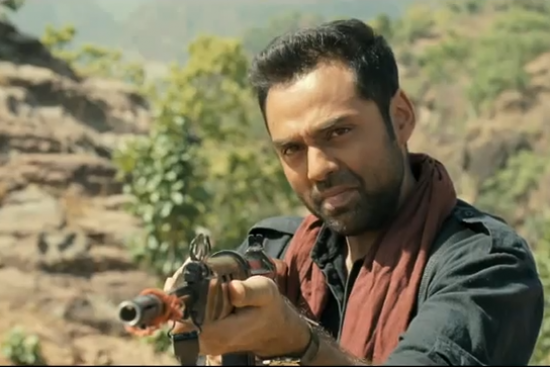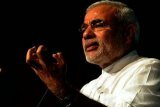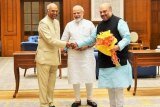Bollywood film review: Chakravyuh
It is a fertile premise for a great story, but not for commercial cinema which demands simplification and entertainment regardless of plot considerations.

Chakravyuh follows the traditional narrative pattern of heroes and villains and applies it to a complex conundrum for which nobody has found feasible answers. Bits of it are reproductions of Jha’s earlier work, notably Gangaajal, which has an incorruptible SP charging at the local political class like a raging bull. Here, the cop, Adil Khan, is played by Arjun Rampal with sincerity compensating for deficiencies of acting prowess.
More like this
His best friend Kabir (Abhay Deol, fairly engaging) is a loose cannon with a fiery temper. But in Adil’s hour of need, Kabir steps in to infiltrate the Maoist ranks and help the police capture their wily leader Rajan (Manoj Bajpayee, the heart of any film he acts in). Their ideological head Govind Suryavanshi (Om Puri) is already in prison and refusing to co-operate with the police.
The set-up, predictable as it is, holds promise, with politicians and business tycoons (Kabir Bedi helming a company called Mahanta and no prizes for guessing what that name stands in for) at the throats demanding a quick resolution which suits their agenda.
One would have liked to see Kabir’s evolutionary graph from informant to insider. The screenplay encapsulates his transformation through scenes of blatant injustice and callousness even as the Naxal leadership stays steadfastly committed to the poor. There is a token bad apple (Murli Sharma) siphoning off funds from the money they extort for his ‘aiyyashi’. But there aren’t any ideological conflicts among the Maoists, nor any shades to those representing the establishment––it’s all too neatly laid out.
For Chakravyuh to work, the audience ought to have connected with at least one of the principal characters––both Kabir and Rajan hold potential. But being a firmly mainstream project (with loud background music, a horrible item song and a leading lady who has lost her way from the sets of Jannat 2), it cannot delve any deeper than stating how much of India’s wealth rests with its rich, how callous and corrupt the political class is, how easily the poor are crushed and how helpless the police and bureaucracy feels.
All of this is undoubtedly true. And Jha deserves credit merely for bringing this conflict centrestage. But compare it to Sudhir Mishra’s vastly superior Hazaaron Khawishen Aisi (also addressing Naxalism, but in an earlier generation) or even Govind Nihalani’s Hazaar Chaurasi Ki Maa, and you realise the difference is elementary––building the narrative through characters, rather than inserting them in a predetermined mould.
Deepa Deosthalee is a film critic and a regular contributor to Cinemascope column. The views and opinions expressed in this article are those of the author and does not reflect the views or position of IndiaNewsBulletin.com. More of Deepa's work can be found on her site Film Impressions.
Most read
- 2017: Full list of Indian States, capitals and their Chief Ministers; Nitish Kumar quits and takes oath again as Bihar CM!
- List of all the major rivers of India: Names, Origin and Length
- Ram Nath Kovind is 14th Indian President after Pranab Mukherjee. Here's a list of all Indian Presidents since 1950
- Indian cabinet September 2017: Full list of Ministers and their portfolios in Narendra Modi government
- Dosa recipe: How to make crispy Paper Dosa and Masala Dosa
- SIIMA 2016 Pics: South Indian Cinema stars dazzle in Singapore for the awards red carpet
- Commonwealth Games 2014: Full list of Indian gold, silver and bronze medal winners
- South Indian actress Trisha Krishnan’s father passes away
- Review: Southall Travel (Also Travel Trolley and Fly Sharp)
- Navrangi Navratri 2016: UK Indians revel in the traditional magic of garba and dandiya in London
India News Bulletin by email
More Lead Stories
- Pics: Salman Khan in London for his Global Diversity Award
- Osterley Gymkhana London hosts 70th Indian Independence Day Celebrations
- Indian tourists involved in fatal collision on M1 motorway involving minibus and 2 lorries
- 2017: Full list of Indian States, capitals and their Chief Ministers; Nitish Kumar quits and takes oath again as Bihar CM!
- Indian train meals not protected from rats, cockroaches, dust, insects, warn auditors












